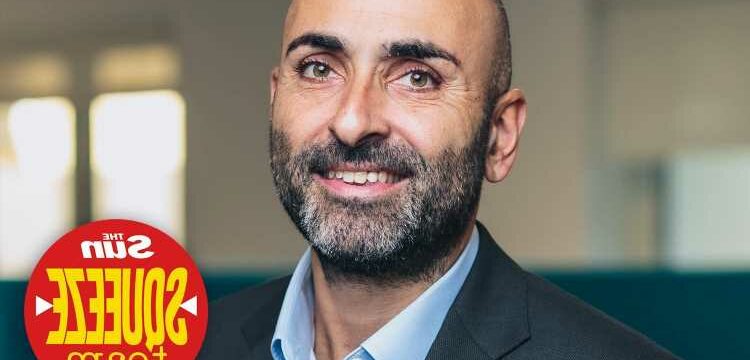SAVING cash is tougher than ever, but investment expert Laith Khalaf explains how to turn a tenner a month into a £10,000 nest egg.
Brits are being clobbered by eye-watering bill hikes, but putting aside just £10 a month – the price of three takeaway coffees – could help you build up a sizeable savings pot.
Laith Khalaf, head of investment analysis at AJ Bell, has over 20 years of experience helping people make their cash go further.
He explains the best ways of investing £10 a month to help you save for an emergency fund, a house, or your retirement.
You could come out with tens of thousands of pounds – here’s how.
Cash accounts – up to £4,200
If you’re saving for anything you want to get in the next five years – like a car, or a new home – the best place to save your money is a cash account
These are savings accounts offered by banks and building societies, which don't restrict your access to your cash.
Most read in Money
IN GOOD NICK Mansion goes on sale for more than £2m – you won't believe what it used to be
Sky broadband goes down leaving hundreds of customers without internet
Just WEEKS left to make sure you get a £150 council tax rebate – here's how
Millions of families on Universal Credit to be worse off from April
The downside of these accounts is that ultra-low interest rates have pushed down the amount of interest on offer, which means it's impossible to beat inflation with cash in the bank.
Currently, you'll struggle to even find an interest rate higher than 1%.
Laith said: “If you were saving £10 a month and were only to be able to get a 1% return on your money from cash for the whole period, then after 10 years you would have £1,270.
"Over 20 years you would have £2,670 and over 30 years you would have £4,200."
Not only are these returns not impressive, but inflation means the spending power of your money will actually be reduced.
Of course, rates won't always be as low as they are today, and money you save now can benefit from better interest rates in the future.
Stock market – up to £10,060
If you’re saving for anything you want beyond a five-year period – for example, your retirement – then you might want to look at stock market investments.
Laith said: "You can't predict what the stock market will do in the short-term, so investing for one year is no better than tossing a coin.
"But over the long-term, history has shown the stock market delivers bigger returns than cash more often than not."
Investing newbies need to do their research though – and you should never put money in something you don't understand.
Beginners should look for lower-risk options such as a mixed-asset fund, which invests in a variety of different things like property, company shares and bonds.
You also might want to consider investing in a tracker fund, which copies the performance of a chosen stock market, such as the FTSE 100.
These often have low fees and are simpler to understand than many other investments, Laith said.
One of the advantages of investing in the stock market is you can get higher returns than investing in a cash account.
Laith said: “If you invested £10 a month in the stock market and achieved 6% growth every year, then after 10 years you would have £1,680.
"After 20 years you would have £4,680, and after 30 years you'd have £10,060."
Use a piggy bank – up to £3,600
Some people find it easier to save by taking cash out of the bank and popping it in a safe place like a piggy bank.
Popping a tenner a month into a savings pot means you’ll get out exactly what you put in.
So after 10 years that would be £1,200, over 20 years £2,400 and over 30 years £3,600.
But you’ll need to consider the risks before you chose this method, Laith said.
“Using a piggyback might seem like a simple way to save money, but you’re missing out on interest by keeping your money effectively stashed in a mattress.
“It’s also not very secure and the money could be lost, accidentally thrown out, or even stolen.”
What if I’m struggling to save?
With a cost of living crunch underway, even putting aside a tenner a month could be tricky for families on a budget.
But if you do really want to start saving, Laith said the best thing is to get on top of your monthly budget.
He said: “Think about whether there are any ways you might be able to trim a few costs here, or just make things more efficient.
“Chances are if you look over your monthly expenditure with a critical eye, you will probably find you are paying for some things you don’t use very much, or possibly even at all, which might free up a bit more money that can be squirrelled away.”
The best time to start saving is after you get a pay rise.
You should then have some extra money coming in every month – try and put this spare cash into your savings.
If you're looking for other ways to save money on your bills and get extra cash, take our money MOT.
Here's how one saver tracked down a lost bank account after 60 years and it was worth hundreds of pounds.
Here's how saving £70 a month could set your child up with £21,000 when they turn 18.
We pay for your stories!
Do you have a story for The Sun Online Money team?
Email us at [email protected]
Source: Read Full Article





